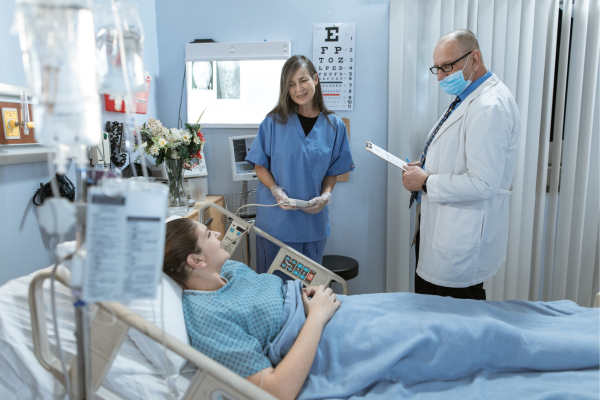August 12, 2014
Some people suddenly lose their kidneys’ function. Their kidneys stop cleaning the blood, removing extra salt and fluids, and more. Without functioning kidneys, that person’s life is at risk. Learn more about sudden or acute kidney injury (AKI) and what to do if you experience it.
Acute Kidney Injury
Most people with kidney failure have gradually lost the function of their kidneys over time. Acute kidney injuries develop rapidly over a few hours or days.
Acute kidney injury risk factors include:
- Being hospitalized: Especially for a serious condition that requires intensive care
- Decreased blood pressure: Due to low blood pressure from burns, dehydration, hemorrhage, surgery, clotting disorders within the kidneys, septic shock, serious urinary tract obstructions, and pregnancy complications
If you have one of these problems, your healthcare team will likely watch your kidney function.
Join the NKF Blog Newsletter
Get inspirational stories and kidney disease resources delivered to your inbox every month. You'll gain practical insights and expert advice to help you better understand and manage your kidney health no matter where you are on your kidney journey. Subscribe today.
AKI Testing
You may not notice the symptoms of acute kidney injury at first because it often develops slowly. That’s why testing is so important.
Symptoms may include:
- Keep track of these potential symptoms
- Decreased urine amounts
- A metallic taste
- Areas of swelling in the body
- Problems concentrating
- Fatigue and not wanting to do anything
- Nausea, vomiting and/or diarrhea
- Abdominal pain
- Seizures or coma
Report any of these problems to your healthcare team. If you develop AKI, quick treatment and hospitalization may bring your kidneys back online.
AKI Treatment
AKI requires immediate treatment. The good news is that acute kidney failure can often be reversed. Go to the emergency room or call 911 immediately if you are experiencing symptoms of AKI. Once the underlying issue is treated, the kidneys usually start working again. Until then, you’d need dialysis treatments to take over your kidney’s jobs.
*This information is for educational purposes only.


















